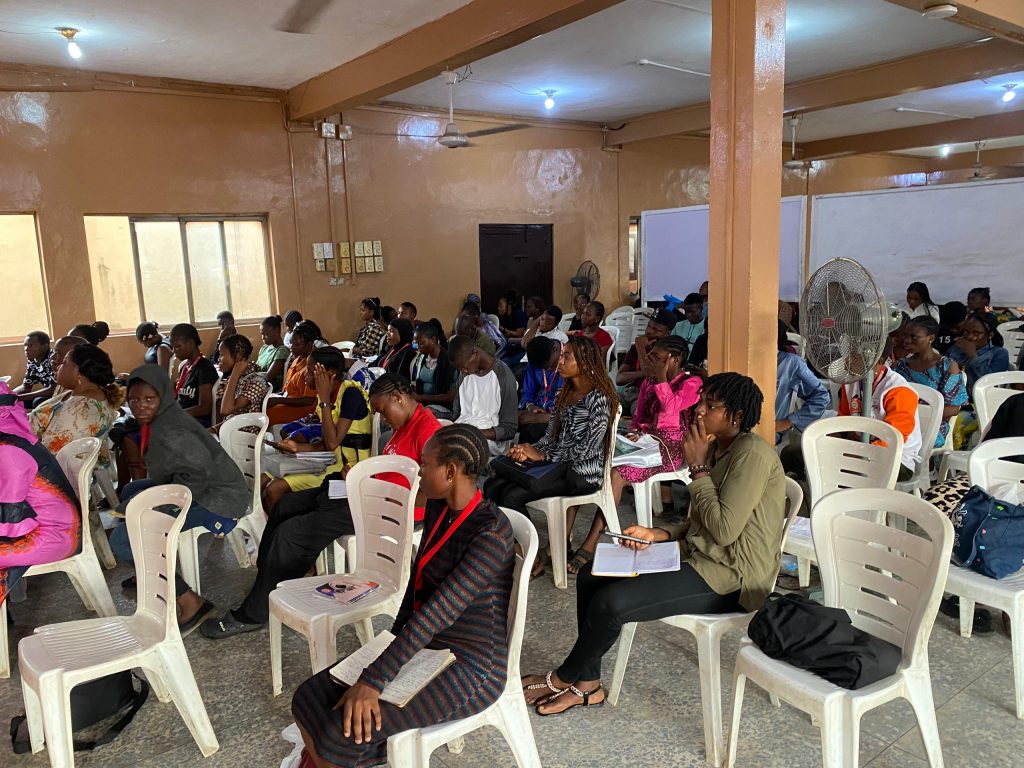*WPFD*: Media Educators Call For Solidarity Among Journalists
In the spirit of commemorating the 2024 World Press Freedom Day (WPFD), media educators at the Journalism Education and Trauma Research Group (JETREG) Africa Hub have called on Nigerian journalists to stand in solidarity against intimidation.
The call was made at the World Press Freedom Day celebration organised by JETREG in collaboration with the Nigerian Institute of Journalism (NIJ), Lagos on Friday, May 3.
The programme, which took place at the institution’s auditorium, was focused on discussing the challenges that media practitioners face in Nigeria and the role of journalism in environmental issues. This was to complement the theme, “A Press for the Planet: Journalism in the Face of the Environmental Crisis.”
It also served as a platform to educate communication students on the nuances of being a reporter, especially with a focus on climate change.
Lead at JETREG Africa Hub, Professor Dele Odunlami, who joined the event virtually, noted that the journalism landscape in Nigeria is hostile, and journalists of this age need to remain resilient in discharging their duties.
“Hostility against journalists is high because the environment itself has a lot of hindrances that are holding us back,” he said.
Dr. Nureni Bakanne, during his presentation, noted that the rising trauma in environmental reporting should be brought to light. But without knowing what causes these traumas, it will be challenging to resolve them.
He questioned the Nigerian academic Institutions on their role in educating the students on environmental reporting, especially in specific areas such as biodiversity, water resources, pollution, natural disasters, environmental policies, and research.
In his words, “Specialisations, topic issues, reporting and training. Do they know this topic and what specialisation they fall in? If they are aware, they won’t have so many challenges facing them today.”
He also encouraged schools to integrate these specialisations in their curriculum, inviting experts who have ventured into this field to educate the students to give them more practical wisdom that is beyond the four walls of a classroom.
Other keynote speakers at the event were a Lecturer at the University of Lincoln, United Kingdom, Prof. Ola Ogunyemi and Environment correspondent, Dr. Esther Omofariola.
Dr. Omopariola pinpointed the need to understand the environmental traumas the climate change and amplify our voices to educate the public.
“You are guardians of truth; your role is to inform, mobilise awareness to make a change and educate about these environmental crises.
“When COVID-19 sprouted, ‘we’ said it would be only in China, but it eventually reached everywhere. That is how the environment is, and climate change knows no bounds. In rainy weather now, I am still sweating. We should reflect on our health. We say ‘it will not affect us now,’ but it will affect you later,” she emphasised.
While encouraging students to take advantage of resources online in their reporting, Prof. Odunlami mentioned that JETREG plans to reach students in journalism and other fields by educating them on trauma.
“Getting is trying to make awareness, with its 250 members across the world, on the symptoms of trauma, how to cope with it. Surveying in 2021, JETREG saw that people are aware of this but have no knowledge and confidence to teach trauma, so we are now trying to provide that knowledge,” he revealed.
While appreciating the keynote speaker, NIJ Provost, Mr. Gbenga Adefaye reminded students that this day marks the struggle journalists go through, their challenges, achievements and the importance of this profession and its freedom.
According to the NIJ boss, “This day is about the freedom of the press, challenges, solutions, honour and uphold of the fundamental human rights principles, dependence of the media and recognise sacrifices made by journalists.”
Also present at the event were: Lecturers at Pan-African University, Yaoundé, Cameroon, Prof. Bolanle Akeredolu

